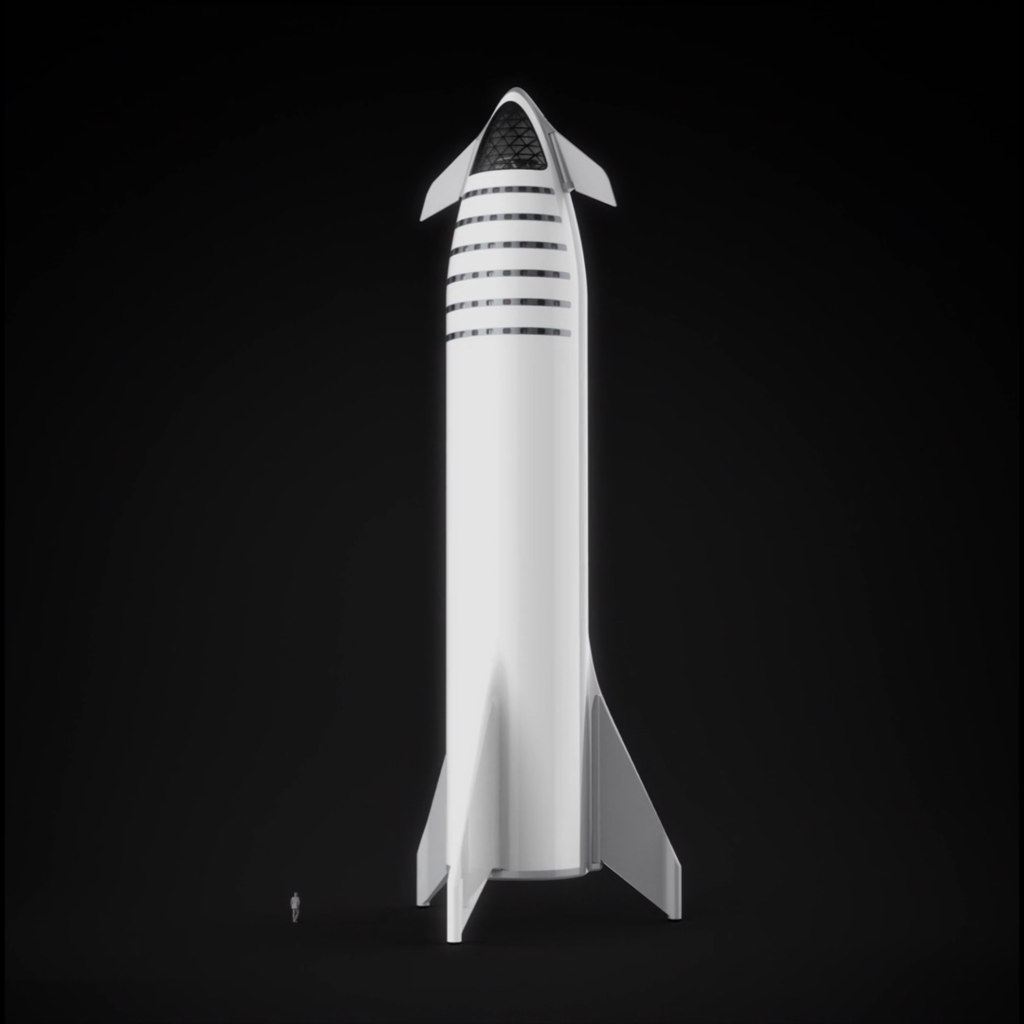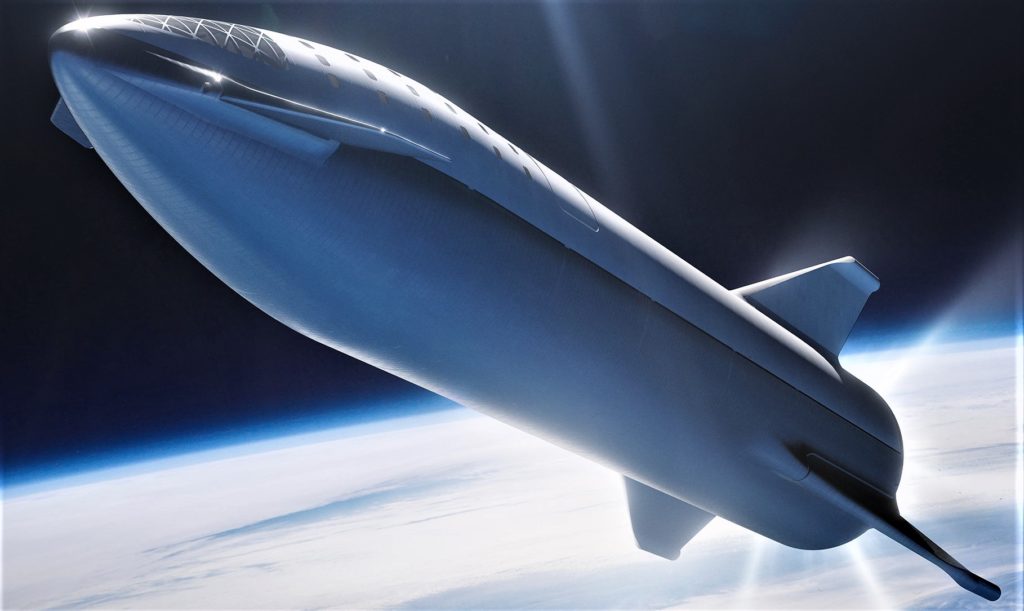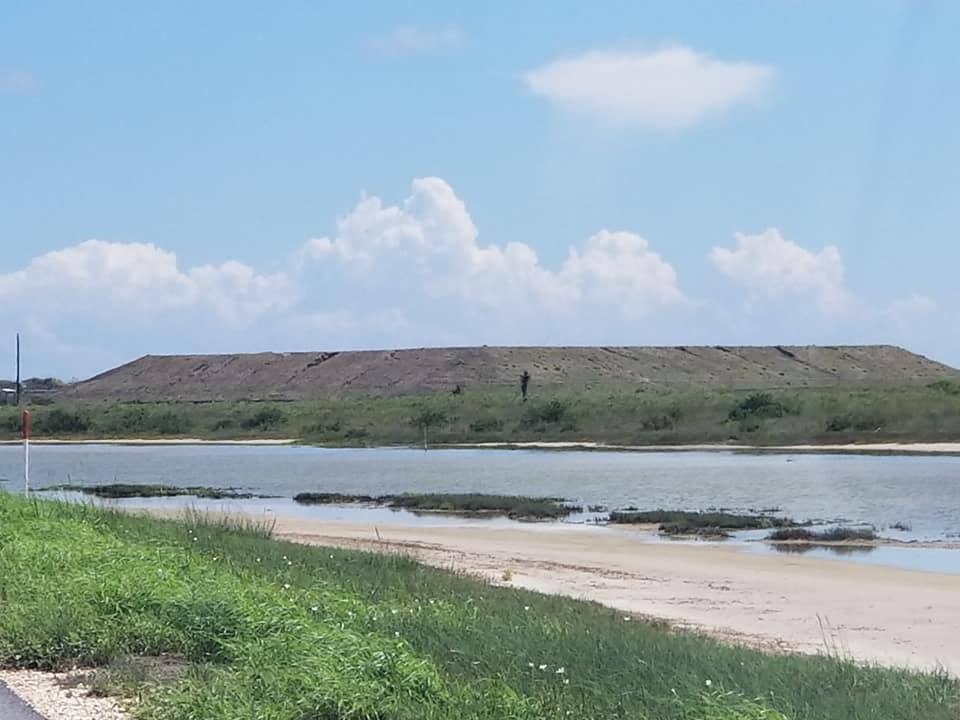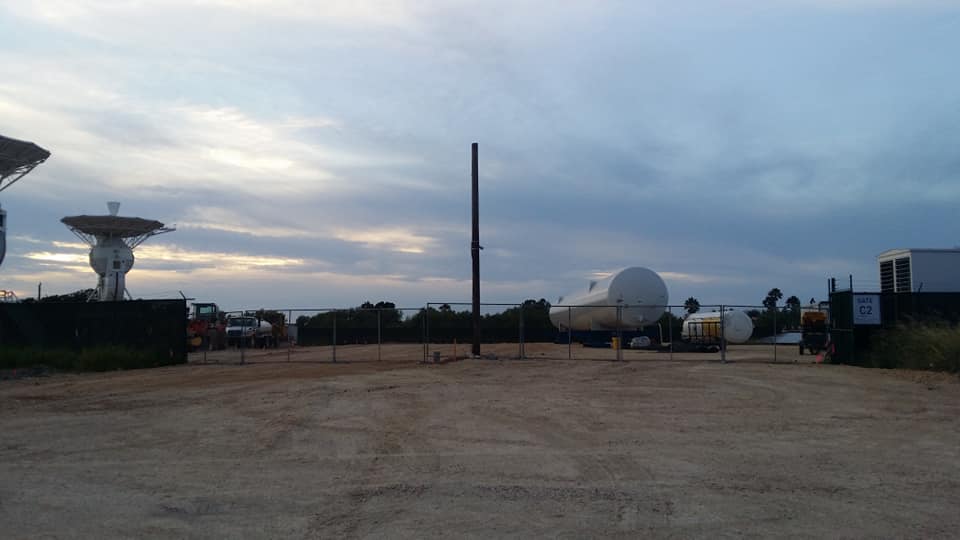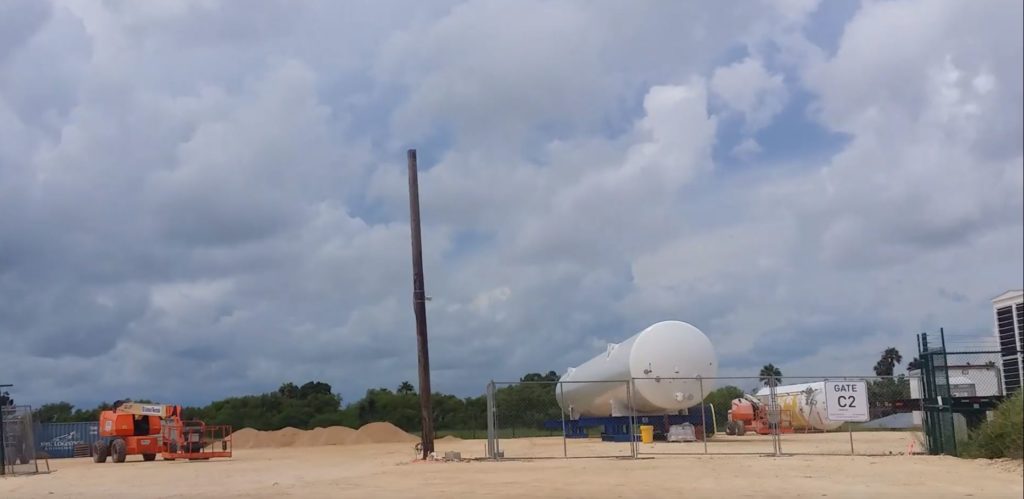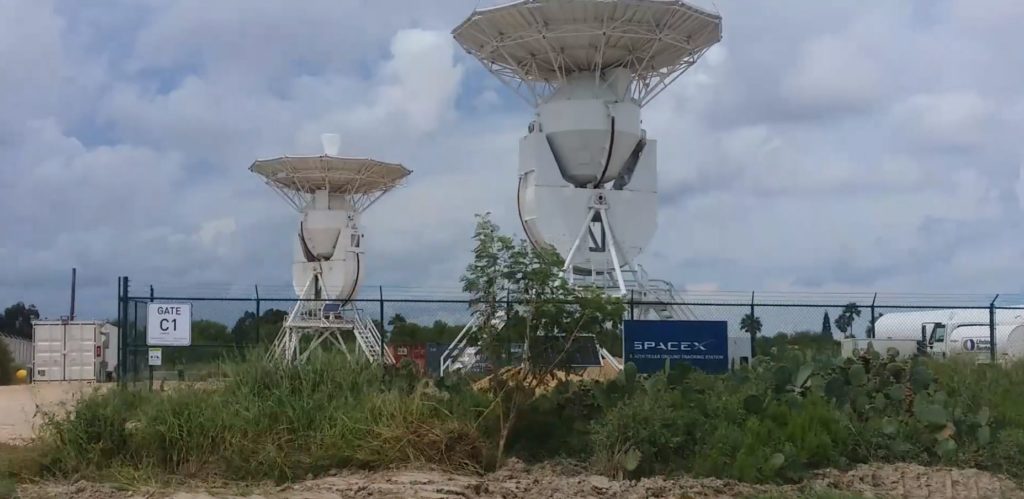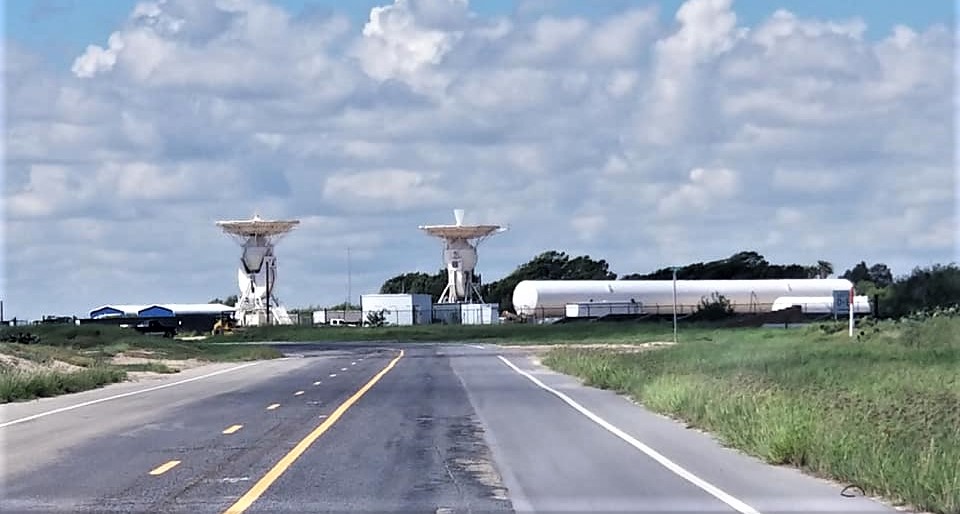
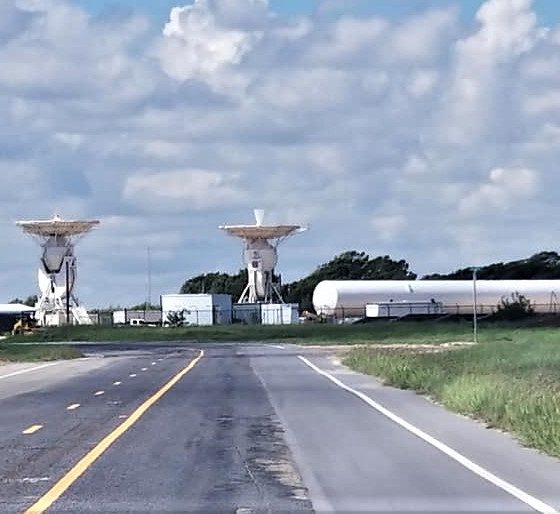
News
SpaceX ramps South Texas activity to prepare for 2019 BFR spaceship testing
At the same time as the hardware for SpaceX’s first BFR spaceship is entering the early stages of manufacturing, the company’s South Texas test facility is slowly taking shape after more than 18 months of what can be fairly described as hibernation.
The likeliest location for a near-future spaceship test stand or pad has also experienced a comparatively vast influx of construction workers and general activity that began earlier this month September, nearly two and half years after SpaceX began preparing the unstable coastal wetland with the addition of several hundred tons of soil.
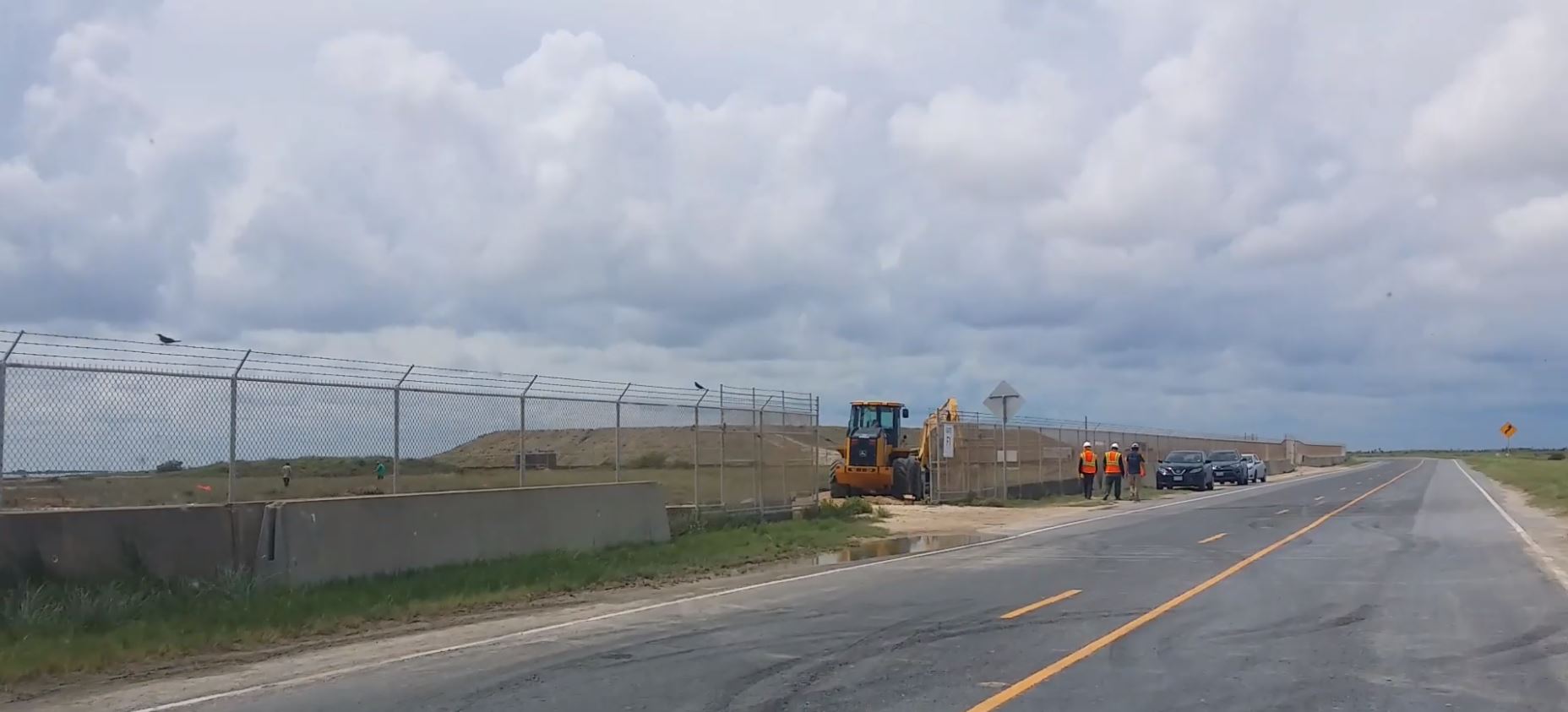
According to a number of posts from local Texans that are also members of a small SpaceX fan group on Facebook, activity around the company’s Boca Chica, Texas facilities has exploded in recent months, and even more so over the last several weeks. SpaceX’s ground tracking facility has harbored the vast majority of attention for some time, particularly following the relatively recent arrival of a massive crane, construction of a shelter for said crane, and the appearance of two massive vacuum-insulated tanks for liquid oxygen (LOX) and liquid methane/natural gas (LNG).
Presently sat beside two large antennae on the Crew Dragon tracking facility’s plot, those propellant tanks are certainly both eye-catching and definitive evidence that something huge and nearby will soon need large quantities of liquid propellant. In the case of the LOX tank, a back-the-envelope estimate suggests that it can hold an obscene 400 metric tons (~900,000 lbs) of liquid oxygen, while the much smaller LNG tank (assumed, not guaranteed) would be capable of holding less than 25,000 kg of liquid methane, thanks mainly to the fact that liquid methane is roughly three times less dense than LOX.
An immense liquid oxygen (LOX) tank just arrived at @SpaceX's prospective Boca Chica, TX facility, likely to be dedicated to BFR & BFS testing. @NASASpaceflight forum user "Nomadd" caught some of the first detailed photos, as well as the tank's arrival at SpaceX land on July 11. pic.twitter.com/hr7SeA6BGw
— Eric Ralph (@13ericralph31) July 12, 2018
Thankfully, SpaceX’s BFR Raptor engines will nominally burn oxygen and methane at a ratio of approximately 3.8 to 1, meaning that every 1 kg of methane exiting the rocket will be accompanied by 3.8 kg of oxygen. The fact that this ratio is actually larger than the density ratio of LOX and LNG means that the propellant tanks can be almost the same size
Most notably, as described above, is the abrupt return of construction and site preparation activities at what once was expected to be a Falcon 9 and Heavy launch pad. Over the last 24+ months, SpaceX has simply let the lot sit, although in this case, that sitting was rather productive. Known as soil surcharging, the site was essentially leveled, loaded with hundreds of tons of soil, plumbed with drainage pipes, and then left alone up to this point to let gravity do the rest of the work. Put simply, the unsteady soil of coastal Texas was aggressively drained and compacted into something stable enough to build expensive, long-term facilities on.
- BFS seen standing vertically on the pads of its tripod fins. (SpaceX)
- A view of BFS just after separating from its booster stage. (SpaceX)
- SpaceX’s much-beloved Boca Chica dirt mount, September 18th. (Julie Smith)
- SpaceX’s Boca Chica facilities seen on September 8th. (Maria Pointer)
- SpaceX’s Boca Chica facilities seen on September 19th. Note the two tanks, one for liquid oxygen (left) and the other for liquid methane (right). (Maria Pointer)
- SpaceX’s Boca Chica facilities seen on September 19th.
The hundreds of truckloads it took to bring in the soil will have to be repeated in reverse, removing most of the same soil to leave a level field ready for foundation-laying and series construction. Heavy machinery and construction contractors began arriving earlier this month, indicating that that process is about to begin, after which construction of the facilities that will eventually support Grasshopper-style spaceship testing can begin in earnest. Those BFR hop tests are scheduled to begin no earlier than late 2019.
For prompt updates, on-the-ground perspectives, and unique glimpses of SpaceX’s rocket recovery fleet check out our brand new LaunchPad and LandingZone newsletters!

Elon Musk
Tesla CEO Elon Musk trolls budget airline after it refuses Starlink on its planes
“I really want to put a Ryan in charge of Ryan Air. It is your destiny,” Musk said.
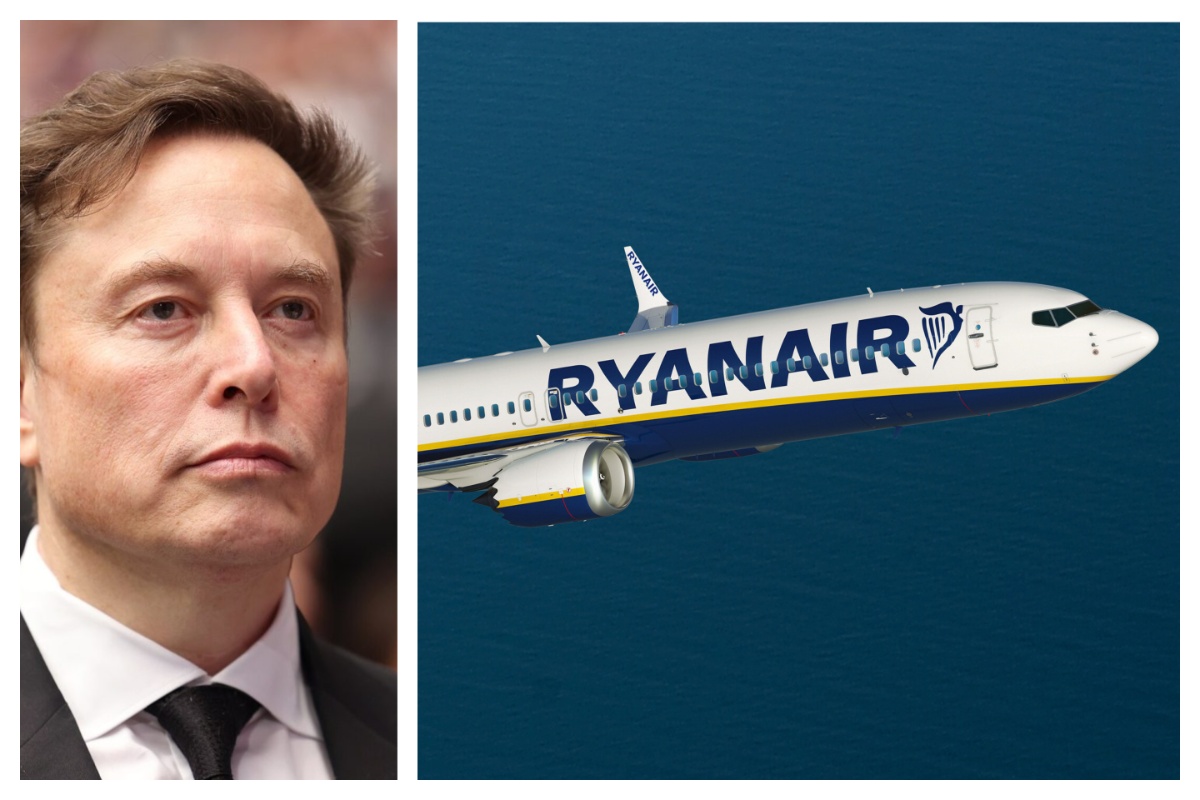
Tesla CEO Elon Musk trolled budget airline Ryanair on his social media platform X this week following the company’s refusal to adopt Starlink internet on its planes.
Earlier this week, it was reported that Ryanair did not plan to install Starlink internet services on its planes due to its budgetary nature and short flight spans, which are commonly only an hour or so in total duration.
Initially, Musk said installing Starlink on the company’s planes would not impact cost or aerodynamics, but Ryanair responded on its X account, which is comical in nature, by stating that a propaganda it would not fall for was “Wi-Fi on planes.”
Musk responded by asking, “How much would it cost to buy you?” Then followed up with the idea of buying the company and replacing the CEO with someone named Ryan:
I really want to put a Ryan in charge of Ryan Air. It is your destiny.
— Elon Musk (@elonmusk) January 19, 2026
Polymarket now states that there is an 8 percent chance that Musk will purchase Ryanair, which would cost Musk roughly $36 billion, based on recent financial data of the public company.
Although the banter has certainly crossed a line, it does not seem as if there is any true reason to believe Musk would purchase the airline. More than anything, it seems like an exercise of who will go further.
Starlink passes 9 million active customers just weeks after hitting 8 million
However, it is worth noting that if something is important enough, Musk will get involved. He bought Twitter a few years ago and then turned it into X, but that issue was much larger than simple banter with a company that does not want to utilize one of the CEO’s products.
The insufferable, special needs chimp currently running Ryan Air is an accountant. Has no idea how airplanes even fly.
— Elon Musk (@elonmusk) January 20, 2026
In a poll posted yesterday by Musk, asking whether he should buy Ryanair and “restore Ryan as their rightful ruler.” 76.5 percent of respondents said he should, but others believe that the whole idea is just playful dialogue for now.
But it is not ideal to count Musk out, especially if things continue to move in the direction they have been.
News
Tesla Robotaxi’s biggest rival sends latest statement with big expansion
The new expanded geofence now covers a broader region of Austin and its metropolitan areas, extended south to Manchaca and north beyond US-183.
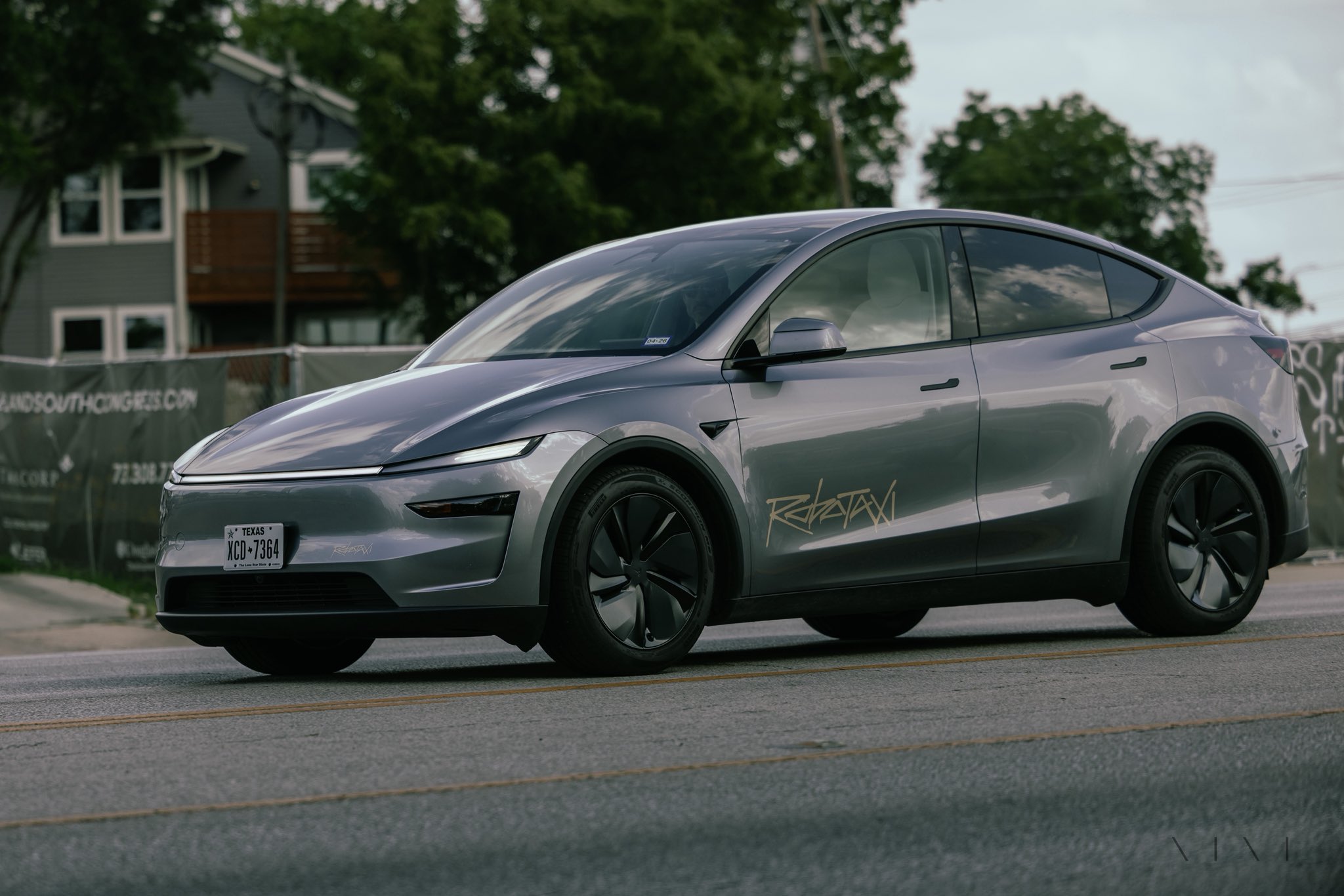
Tesla Robotaxi’s biggest rival sent its latest statement earlier this month by making a big expansion to its geofence, pushing the limits up by over 50 percent and nearing Tesla’s size.
Waymo announced earlier this month that it was expanding its geofence in Austin by slightly over 50 percent, now servicing an area of 140 square miles, over the previous 90 square miles that it has been operating in since July 2025.
Tesla CEO Elon Musk shades Waymo: ‘Never really had a chance’
The new expanded geofence now covers a broader region of Austin and its metropolitan areas, extended south to Manchaca and north beyond US-183.
These rides are fully driverless, which sets them apart from Tesla slightly. Tesla operates its Robotaxi program in Austin with a Safety Monitor in the passenger’s seat on local roads and in the driver’s seat for highway routes.
It has also tested fully driverless Robotaxi services internally in recent weeks, hoping to remove Safety Monitors in the near future, after hoping to do so by the end of 2025.
Tesla Robotaxi service area vs. Waymo’s new expansion in Austin, TX. pic.twitter.com/7cnaeiduKY
— Nic Cruz Patane (@niccruzpatane) January 13, 2026
Although Waymo’s geofence has expanded considerably, it still falls short of Tesla’s by roughly 31 square miles, as the company’s expansion back in late 2025 put it up to roughly 171 square miles.
There are several differences between the two operations apart from the size of the geofence and the fact that Waymo is able to operate autonomously.
Waymo emphasizes mature, fully autonomous operations in a denser but smaller area, while Tesla focuses on more extensive coverage and fleet scaling potential, especially with the potential release of Cybercab and a recently reached milestone of 200 Robotaxis in its fleet across Austin and the Bay Area.
However, the two companies are striving to achieve the same goal, which is expanding the availability of driverless ride-sharing options across the United States, starting with large cities like Austin and the San Francisco Bay Area. Waymo also operates in other cities, like Las Vegas, Los Angeles, Orlando, Phoenix, and Atlanta, among others.
Tesla is working to expand to more cities as well, and is hoping to launch in Miami, Houston, Phoenix, Las Vegas, and Dallas.
Elon Musk
Tesla automotive will be forgotten, but not in a bad way: investor
It’s no secret that Tesla’s automotive division has been its shining star for some time. For years, analysts and investors have focused on the next big project or vehicle release, quarterly delivery frames, and progress in self-driving cars. These have been the big categories of focus, but that will all change soon.

Entrepreneur and Angel investor Jason Calacanis believes that Tesla will one day be only a shade of how it is recognized now, as its automotive side will essentially be forgotten, but not in a bad way.
It’s no secret that Tesla’s automotive division has been its shining star for some time. For years, analysts and investors have focused on the next big project or vehicle release, quarterly delivery frames, and progress in self-driving cars. These have been the big categories of focus, but that will all change soon.
I subscribed to Tesla Full Self-Driving after four free months: here’s why
Eventually, and even now, the focus has been on real-world AI and Robotics, both through the Full Self-Driving and autonomy projects that Tesla has been working on, as well as the Optimus program, which is what Calacanis believes will be the big disruptor of the company’s automotive division.
On the All-In podcast, Calcanis revealed he had visited Tesla’s Optimus lab earlier this month, where he was able to review the Optimus Gen 3 prototype and watch teams of engineers chip away at developing what CEO Elon Musk has said will be the big product that will drive the company even further into the next few decades.
Calacanis said:
“Nobody will remember that Tesla ever made a car. They will only remember the Optimus.”
He added that Musk “is going to make a billion of those.”
Musk has stated this point himself, too. He at one point said that he predicted that “Optimus will be the biggest product of all-time by far. Nothing will even be close. I think it’ll be 10 times bigger than the next biggest product ever made.”
He has also indicated that he believes 80 percent of Tesla’s value will be Optimus.
Optimus aims to totally revolutionize the way people live, and Musk has said that working will be optional due to its presence. Tesla’s hopes for Optimus truly show a crystal clear image of the future and what could be possible with humanoid robots and AI.
